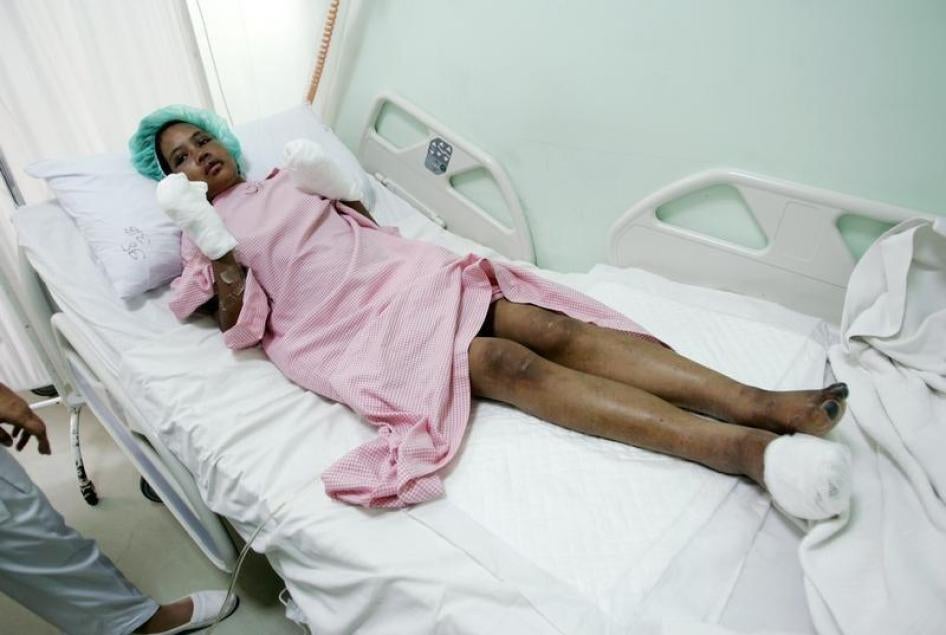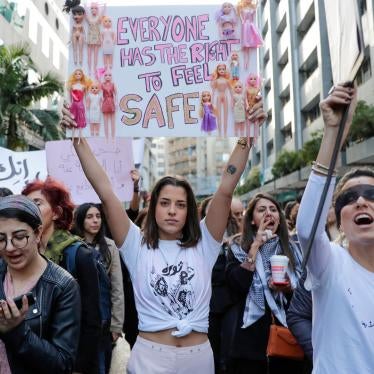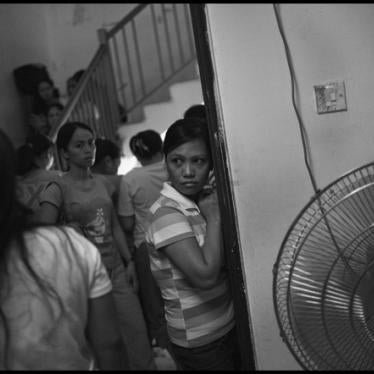Last week, a shocking story hit the headlines: a woman in Saudi Arabia allegedly cut off the hand of her Indian domestic worker, who was trying to escape from the woman's house.
Kasturi Murinathiram, filmed lying in a hospital in Riyadh, said she pleaded with her employer to let her leave, but her employer locked all the doors. When she tried to escape out a window using a sari as a rope, she said, her employer chopped off her right hand and she fell from the third floor.
This is not the first report of extreme abuse of a domestic worker in Saudi Arabia. In 2010, a Sri Lankan domestic worker said her Saudi employer had hammered nails into her body as punishment; the same year an Indonesian maid said her Saudi employer cut and burned her face with scissors and a hot iron, leaving her with horrific injuries; and in 2014, online photos of a Filipina domestic worker's horrendous injuries from boiling water her employer's mother allegedly threw on her went viral.
These are cases where the worker survived. There are other cases of employers torturing domestic workers to death, of domestic workers dying while trying to escape abusive conditions, and of ill-treated workers committing suicide.
Saudi Arabia is not alone. Such stories appear across neighboring Gulf countries like the United Arab Emirates, where a Palestinian couple was reported to have beaten their Ethiopian domestic worker to death and then attempted to use "a chemical substance" to burn away the deceased victim's identifying features.
But far too often, stories of abuse and exploitation of domestic workers go unnoticed. I have interviewed scores of women working in Gulf states who told me that their employers confiscated their passports, withheld their salaries, forced them to work up to 21 hours a day without rest and no day off, confined them to the employer's home, deprived them of food, provided inadequate sleeping conditions, and subjected them to psychological, physical, and sexual abuse. In some instances the abuses amounted to forced labor or trafficking.
The abuse and exploitation are facilitated in part by government systems that give employers an inordinate amount of control over their domestic workers. The lack of protection for domestic workers living and working in private homes with no oversight leaves them vulnerable to abuse.
The Gulf states, including Saudi Arabia, maintain a restrictive visa-sponsorship system, known as kafala. This system ties migrant domestic workers to their employers for the duration of their contract and in most cases bars them from changing jobs without their employer's consent. Domestic workers who leave their employers are considered runaways, and can be arrested and deported. In Saudi Arabia and Qatar, a worker can't even leave the country without an exit permit from the employer.
Many of these countries explicitly exclude domestic workers from labor laws. Saudi Arabia issued regulations in 2013 that provide some protection for domestic workers. They are now entitled to at least nine hours of rest during every 24-hour period, with a weekly day off and paid vacation after two years. But these protections are weaker than those for other workers under the labor laws.
When domestic workers have reported abuse, the employers rarely face criminal charges, and courts have only rarely convicted employers. In cases Human Rights Watch documented, Saudi authorities failed to provide consistent access for migrants to interpreters and lawyers at police stations and during legal proceedings, and the authorities prohibit domestic workers from working until the conclusion of criminal cases, which may take years. Domestic workers may also have to deal with spurious counter-accusations by former employers, often leading workers to drop their own charges. With no shelters for abused domestic workers in Saudi Arabia, those who escape abuse end up in overcrowded embassy shelters or a deportation center. Many drop their criminal complaints and return home without justice.
Saudi Arabia and other Gulf states need to abolish the kafala system for all migrant workers, ensure that domestic workers have equal labor law protections, and investigate and prosecute cases of abuse and exploitation. Perhaps then the horrific abuse of domestic workers will finally come to an end.










